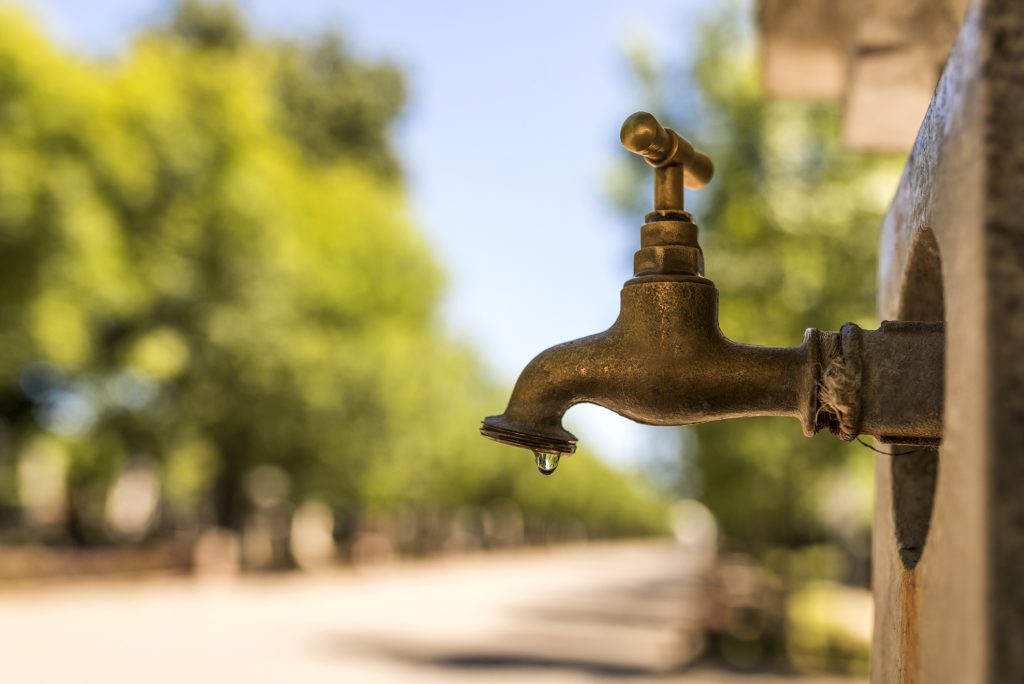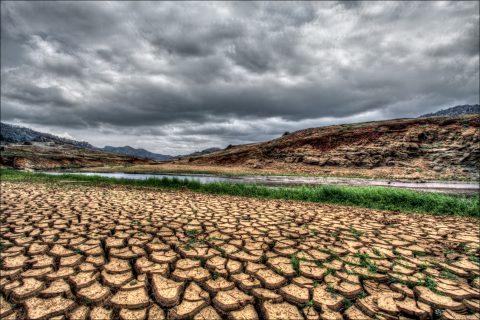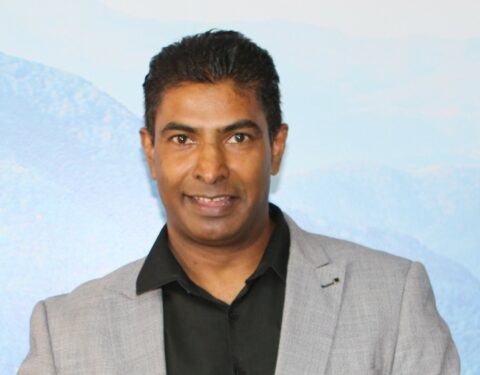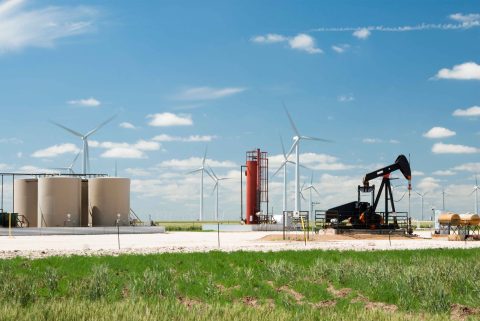CSI
Drought And Water Scarcity
The World Wildlife Fund (WWF) highlights that South Africa is particularly water stressed – and currently it is the 30th driest country in the world. This prolonged dry spell that South Africa has suffered has brought the fragility of water security to the fore. During the past year, Cape Town and surrounding areas have had to grapple with extended and critical water shortages, and towns like Swartruggens in North West Province and even smaller communities such as Senekal in rural Free State, have felt the same pain.
To further emphasise the gravity of the situation they report that water demand is expected to exceed supply in South Africa by 17 per cent in 2030.
PlayPump
The related difficulties have seen corporates such as AFGRI, Coca-Cola, Shoprite Checkers, Sasol and others step up to help find solutions with partners in various parts of the country. Roundabout Outdoor is a non-profit organisation that provides a source of clean drinking water. They operate mainly in rural areas and set up at primary schools that do not have access to a reliable supply of clean water. The organisation receives corporate support from AFGRI, Shoprite, Colgate Palmolive, HCI, CFR Freight, Consol Glass and AECI among others.
Colin Morris, director of Roundabout, explains that they provide water by means of a PlayPump which is a merry-go-round that pumps water from a borehole, while the children are playing on it.
Partners such as AFGRI have supported the maintenance of a number of PlayPump sites in Mpumalanga since 2011; and this has allowed the initial installation and subsequent maintenance to be provided free of charge to schools.
Marion Shikwinya, the managing director of Harvest Time and AFGRI director responsible for corporate social investment (CSI), explains that they spend 40 per cent of their CSI annual budget in the food security sector and 25 per cent in the water security sector. Committed to the provision of clean drinking water to public schools and communities through the development of boreholes and PlayPumps, AFGRI is going the long haul, with plans to support 80 public schools participating in the AFGRI sustainable vegetable gardens before the end of the 2018 academic year. They will also assist more than 40 schools as well as various communities in having access to clean drinking water.
As a benefactor, Morris sees the impact of these funds and says access to clean water at a school has benefits for children, “such as improved health, less time spent away from class either through sickness or in the collection of water, and improved safety for girls, the traditional water gatherers, as they no longer have to walk long distances to collect water”.
He explains that in many rural areas the reality is that access to clean water is often still a problem. Even where infrastructure is in place it generally is unreliable due to rationing of the supply, and when broken it takes a long time to repair. Morris says, “The current water crisis has just made matters that much worse with more cuts in supply and across a broader area. Often the PlayPump is the only reliable source of clean water available. CSI funding has allowed us to install new PlayPumps at needy schools and provide them with a critical source of clean water. In addition and most importantly, it has helped us to maintain existing PlayPumps thus continuing the supply.”
Bokamoso Impact Investments
Lesego Serolong, founder and CEO of Bokamoso Impact Investments, asserts that the effects of climate change can already be felt. She points to Manyeledi Village in the North West which has experienced an erratic rainfall pattern due to the effects of extreme climatic events.
Bokamoso is a social enterprise dedicated to connecting the invisible rural population of South Africa to opportunities via empowerment, using a diverse entrepreneurial platform.
They introduce innovative agricultural solutions to poverty, incubate local rural entrepreneurs, and tackle the lack of basic resources through assessing the resources, skills, and experience available in a community through natural asset mobilisation.
“Our most recent and most impactful service surrounds an agricultural hub in Manyeledi Village, North West Province – an extremely remote community bordering the Kalahari Desert, located in the middle of a food desert and stranded from technological, educational, and basic human resources,” describes Serolong.
“We’ve invested time and resources in Manyeledi, engaging in community discussions and lending an ear to concerns and issues. The project is based in the dry area of the Kalahari with extreme weather conditions, hot summers and cold winters. As a result of these conditions, water availability is a challenge and consequently needs to be used economically. AFGRI has assisted with irrigation, extending our centre pivot irrigation system from 10.2 to 16 hectares.”
In addition to AFGRI, Bokamoso has received support from AGES, a Potchefstroom-based hydrogeology company, offering services in environmental management, geohydrology, engineering geology, agricultural and social consultation as well as several engineering disciplines. Serolong shares that AGES has assisted them in identifying underground water potential and capacity in the region, in order for them to scale and get more people farming.
The Four Returns Project:
Replenish Africa Initiative
In other parts of the country, The Four Returns Project in the Port Elizabeth catchment area is working with farmers to improve sustainable farming practices and implement landscape rehabilitation activities to improve the land’s ability to retain water, reduce run-off and impact of drought. This initiative is supported by Coca Cola’s Replenish Africa Initiative (RAIN) project. RAIN was launched by the Coca-Cola Africa Foundation in response to the severe health challenges faced by millions of Africans living without access to safe drinking water and is working with Living Lands and Four Returns to restore catchment areas by planting dominant canopy trees, refining planting protocols to maximise survivorship and minimise costs in different soil types as well as by training local communities, restoration practitioners and land users on restoration and planting as well as other land uses.
Other partners and beneficiaries of RAIN are the South African Department of Basic Education, the Mvula Trust, Re-Solve Consulting, H2O for Life, Singatha Afrika, and Coca-Cola’s four South African bottlers who through the RAIN Water for Schools project are working to address the construction and rehabilitation of infrastructure and to provide school-specific sustainability plans for monitoring and maintenance of water and sanitation infrastructure.
Oranjezicht City Farm
The IPCC points out that farmers are generally more sensitive to droughts than urban residents, for example, due to their direct dependence on rainfall for their livelihoods. Kurt Ackermann of The Oranjezicht City Farm (OZCF) knows this first hand. OZCF is a non-profit project celebrating local food, culture and community through urban farming in Cape Town and he explains that they are focused on finding innovative ways of being sustainable and discovering new models of farming in a changing environment.
OZCF is built on a spirit of self-reliance and runs a fruit garden, educational, non-profit, outdoor classroom. Being in the city gives it access to resources that rural counterparts may not have, yet they are still not immune to the ravages of climate change. Ackermann explains, “Like all non-profits which have been hit hard by the drought, we have to do better with less. We have employed water-saving measures, we re-use as much as we can, but if the condition persists, we may need to plant less to cut back on water.”
OZCF has opted to focus more on generating its own operating funds rather than leaning too heavily on corporate support for longevity. They set up a farmers’ market with about 5 000 visitors a week. It provides employment for around 200 people, including farmers and around 60 local traders who sell their produce and products at the market, with a turnover of about R16-million per annum.
To further explore smart farming solutions OZCF is partnering with Aachen University and Cape Town city to explore alternative farming models, which will be tested on the farm and if successful, deployed further.






 Sign-up and receive the Business Media MAGS newsletter OR SA Mining newsletter straight to your inbox.
Sign-up and receive the Business Media MAGS newsletter OR SA Mining newsletter straight to your inbox.